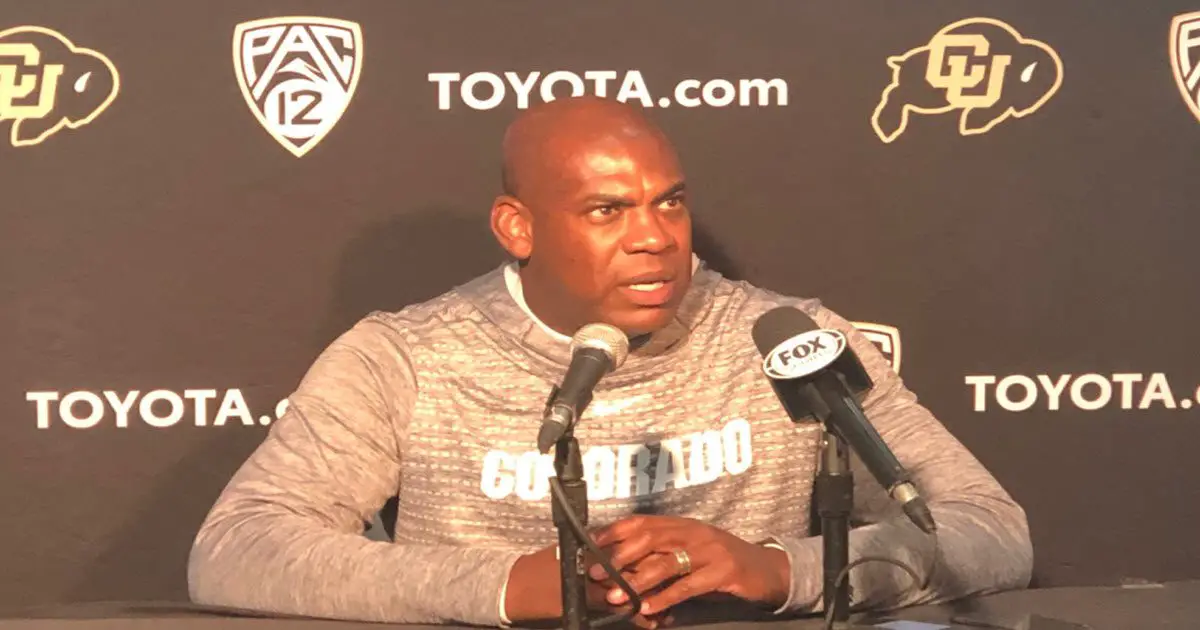The Pac-12 Conference is in a nose dive. And the announcement on February 11 that Colorado (CU) head football coach, Mel Tucker, was leaving CU for Michigan State likely evidences that the dive has reached terminal velocity.
You know what I think?
It doesn’t matter what I think, especially when compared to the thoughts of the people cited below and whatever Larry’s bosses think (if they think at all).
The Media Reacts
Sean Keller, Denver Post: “It’s a terrible look, all the way around. For CU, which is left scrambling, big-timed by the fourth best program in the Big Ten East. For CU athletic director Rick George. For the Pac-12, which adds another layer of affirmation that it is the littlest of the Power 5 little brothers. For Pac-12 Commissioner Larry Scott, because, Larry Scott.”
Dan Wetzel, Yahoo Sports: “In theory the Pac-12 is considered part of the P5, along with the Big 10, which houses Michigan State (MSU). Out in the streets, this is high majors and mid-majors, bullies and victims … This hire was about money. This was a high-major robbing a mid-major. Is the Pac-12 still a Power Conference? After another coach got poached, it’s a fair question.”
Dan Wolken, USA Today: “If NCAA president, Mark Emmert, is worried about name, image and likeness legislation creating competitive imbalance, well, it already exists.
When a Big 10 school can pile up money so high in front of a Pac-12 coach with a 5-7 record that he would be dumb not to take the job, it’s time to admit that more money for the players is a potential solution to the imbalance rather than the extinction event of the college model. Maybe more than any other coaching hire in the last four years, Tucker’s departure from CU says a lot about the current state of affairs in college football.”
Chris Fowler, College Football (CFB) Broadcaster and Analyst, on his 2/12/20 Instagram post: “Speaking as a CU alum and not a CFB analyst, I am pissed off. This stinks. This sucks.”
Fowler did not blame Mel Tucker for taking the MSU job. He blamed the current state of CFB affairs.
After Mel Tucker rejected MSU’s advances on Saturday, 2/9/20, saying he was all-in at CU, on Tuesday, 2/12/20, Tucker’s agent informed CU AD Rick George that Tucker was leaving for Michigan State. Leaving after new recruit final signing date and shortly before spring practice. Leaving CU and George out to dry. Leaving the kids he just signed at CU in the lurch.
Coaches Follow the Money
But, there are millions of reasons why Fowler did not come down on Tucker. MSU is raising Mel Tucker’s base pay from $2.4M to $5M. That’s $1M for each game won by Tucker to date. MSU doubled the salary pool for assistants from approximately $3M to $6M, and MSU also agreed to make significant investments to the strength and conditioning program. It should also be noted that Tucker, after playing at Wisconsin, started his coaching career working as a grad assistant for Nick Saban at MSU and was the defensive coordinator at Georgia before taking the CU job. He had no ties whatsoever to the western part of the country.
“OK, but why didn’t CU match all of this,” you ask?
In fiscal year (FY) 2019, CU athletics brought in $95M against $98.4M in expenses. In the same FY, MSU brought in $145.6M and finished in the black.
In FY 2020, MSU will receive $55M from the Big 10; CU, $33M from the Pac-12. Over the next five years, each B1G school will collect at least $139M more than Pac-12 schools. And after the next round of media negotiations, the difference in distributions will grow larger to the point at which B1G (and SEC) schools will likely be bringing in double that of the money distributed to the Pac-12 schools annually.
“The Pac-12 has yet to make annual distributions that so much as reach the low end of Scott’s pre-launch projections. The decision to reject ESPN’s offer to take over distribution of the Pac-12 Network is putting athletic departments at greater risk of falling behind.” — Jon Wilner, Mercury News
Cal in FY 2019 posted a deficit of $24M and is projected in FY 2020 to post a deficit of $17M.
Little brother, UCLA, is expected to post the same negative number in FY 2020 and lost $18.9M in FY 2019. The 2019 shortfall was covered by an interest-bearing loan from the University, not boosters. Meaning, a loan provided by California’s tax-paying citizens.
Oregon State and Washington State athletic departments both have tens of millions of dollars in accumulated debt.
And, of course, Larry has “perfectly timed” media deal re-negotiations to come in after the new B1G and SEC agreements have been concluded.
More Pac-12 Poaching
Mel Tucker is not the only Pac-12 football head coach heading back east. In January of 2020, Mississippi State, having fired new Oregon OC, Joe Moorhead, poached The Pirate from the Palouse. Leach left for a 25% pay raise, a $5M base salary and a$1M bump in assistant coach money.
Both Leach, who never won a division title at Wazzu, and 5-7 Mel Tucker will in 2020 be paid more in base compensation than every head football coach (with the possible exception of David Shaw) in the Pac-12. What will the Ducks do when an Auburn, for example, offers to more-than-double Mario Cristobal‘s salary? To double the assistant coaches salaries?
Assistant coaches are also prime poaching material. Ohio State took Alex Grinch, now at Oklahoma, away from Wazzu. The ASU DC recently signed with Syracuse. Syracuse! The Oregon D plays like it did, or better, in 2020, how much will it cost to keep Andy Avalos on board?
Historically, the two MSU’s that came a-poachin’ are far from what anyone would consider to be traditional blue blood programs. But both, compared to the Conference of Champions, are nouveau riche and getting richer. The Pac-12 “leaders,” the bozos of business decision-making, have morphed the conference from a 747 into a downward spiraling Douglas DC-3.
Can the Ducks bail-out prior to impact with a Mountain (West?) Or is it already too late to pull the ripcord?
Jon Joseph
Georgetown, TX Top Photo from YouTube
 Andrew Mueller, the FishDuck.com Volunteer Editor for this article, works in digital marketing in Chicago, Illinois.
Andrew Mueller, the FishDuck.com Volunteer Editor for this article, works in digital marketing in Chicago, Illinois.

Jon Joseph grew up in Boston, Massachusetts but has been blessed to have lived long enough in the west to have exorcised all east coast bias. He played football in college and has passionately followed the game for seven decades. A retired corporate attorney Jon has lectured across the country and published numerous articles on banking and gaming law. Now a resident of Aiken South Carolina, Jon follows college football across the nation with a focus on the Conference of Champions and the Ducks.





